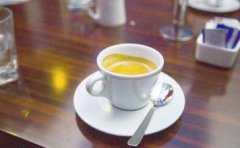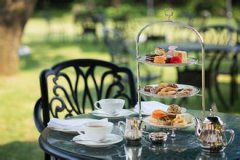A brief introduction to the treatment method of grinding degree and baking degree of hand-made rose summer boutique coffee beans

Panamanian rosy summer coffee bean (Geisha) is a very rare coffee variety, which has caused a sensation among coffee connoisseurs all over the world over the past five years. Rosa coffee bean is considered to be the brightest, most abundant and strongly fragrant coffee variety. Rosa coffee trees grow at very high altitudes and have beautiful slender leaves. Rose summer coffee fruits and roses summer coffee beans are also slightly slender compared to other top-quality high-altitude coffee. Rose is full of sweetness and cleanliness on the palate, with rich aromas ranging from berry and citrus to mango, papaya and peach. A very obvious lemon (bergamot) general aftertaste is also a typical cup test attribute. Rosa coffee beans are often the champion of coffee varieties. Rosa coffee bean cup evaluation of moderate thickness, sweet, multi-layered tropical fruit flavor, rose type aroma aftertaste.
The dry aroma of Rosa is very bright, with aromas of rose and jasmine, with aromas of pomelo and citrus, light baked with nutty aromas, and wet aromas with hazelnut and more floral characters. In terms of taste and flavor, compared with the previously rising aroma, it may be slightly mild and subtle in the early stage, and the flower and fruit flavor will gradually increase as the temperature drops, and the cold aroma is excellent (sweet preserved fruit, rose fruit, orange glaze jam, strawberry jam, silk pine, cherry, vanilla and rose gradually fade, leading to lemon-flavored fruit). This is a coffee that can be praised by a large number of adjectives, the sweetness of the silk, which is testing the brightness of this coffee, especially when it is lightly roasted.
Rose is full of sweetness and cleanliness on the palate, with rich aromas ranging from berry and citrus to mango, papaya and peach. A very obvious lemon (bergamot) general aftertaste is also a typical cup test attribute. So far, Rose Summer has been the champion of coffee varieties. [cup test evaluation] moderate alcohol thickness, sweet, multi-layered tropical fruit flavor, rose type aroma
Although Zhu Kula is poor and backward, it has an inextricable bond with coffee. In addition to growing coffee all over the country, the villagers all have a tradition of drinking coffee: self-growing, self-grinding and self-brewing, and now men, women and children in the village have the habit of drinking coffee. The villagers here have a special affection for the coffee tree. Even if the coffee beans do not bring them any economic benefits, the villagers are not willing to cut down a coffee tree.
So as not to be robbed of the brilliance of other varieties by Rosa. Rosa is a member of the Tibika family, but it became famous more than 70 years after leaving Ethiopia, and fulfilled the saying that Ethiopia is a treasure trove of Arabica genes. Giving a variety to go abroad is enough to stir up trouble in the coffee market.
The appearance of raw beans is slender, and ripe beans have strong and rich fruit aroma. I personally feel that there is a strong sweet smell of roasted sweet potato, which is my favorite. Because the harvest of this variety is very low, it can not be purchased by commercial trade. So little cultivation in Panama, Jamaica, Malawi, Kenya, Guatemala and other countries
A king and queen of the coffee world: the Blue Mountains of Jamaica and Kona, Hawaii. In the past, the identification of top coffee used to follow Japan. More than 90% of Blue Mountain was exported to Japan, and 100% of Blue Mountain could not be bought in the domestic market. With the continuous improvement of the standard of coffee-producing countries and the sharing of information, we are exposed to more boutique coffee, and this Panamanian summer has become the new king of coffee in recent years. But there is no difference between good and bad, they are all top coffee beans. Good or bad can only be decided according to individual taste, there is no distinction between high and low.
Rosy summer coffee beans show a beautiful blue-green, jade-like warm texture, smell fresh grass, peach, berry flavor and oolong tea unique milk sweetness that most coffee beans do not have. it seems that aroma and taste of this kind of things need to be associated, but a hint of tea smell is obvious to us.
In order to highlight the characteristics and aroma of this bean, the baking degree is on the verge of two explosions, and two explosions and one sound are more commonly used baking degrees, which can give play to the characteristics of the beans themselves. If they are too shallow, they will produce miscellaneous smells, and if they are too deep, they will lose the aroma of flowers and fruit acid. of course, this should be adjusted according to the characteristics of coffee beans and the roaster's understanding of the beans themselves.
Baked ripe beans look like some "wrinkles". Beans with "sexy folds" are all designed to highlight their original flavor and acidity, but if the quality of raw beans is not high, they will produce some miscellaneous flavors, such as rotten soil, grass and dry taste, which bakers should try to avoid. Baked rose summer has charming lemon and citrus aromas and super sweet honey cream flavor.
Rose summer ah, the god of flowers, the fragrance of flowers, bright fruit acid, a drink there is an amazing feeling. In 2007, the International famous Bean Cup Test sponsored by the American Fine Coffee Association (SCAA) won the championship again, and the bidding price was sold at US $130 per pound, setting a record for the highest price in the history of competition beans.
After drinking a rose summer, I still have a charming mint aroma when I return to Gan.
Of course, it also depends on the specific producing areas, grades, climate of that year, treatment and speculation. Like red wine and tea, they all stress the harmony of heaven, earth and people, which are indispensable. We can't generalize.
Rose summer coffee
The species of Geisha was discovered in the Rose Summer Forest of Ethiopia in 1931 and sent to the Coffee Institute in Kenya; it was introduced to Uganda and Tanzania in 1936, in Costa Rica in 1953, and in Panama from Franco Coco of Dongba Seven Farm Garden in the 1970s. Mr. Serraxin got the seeds from CATIE in Costa Rica and started growing Rosa Coffee, which is not easy to come by because of its low production and bidding.
Important Notice :
前街咖啡 FrontStreet Coffee has moved to new addredd:
FrontStreet Coffee Address: 315,Donghua East Road,GuangZhou
Tel:020 38364473
- Prev

A brief introduction to the history and culture of the origin and development of Panamanian boutique coffee jadeite manor
Red bid Rose Xia participates in the global bidding auction in May every year. Green bid does not participate in the auction, but it is also of high quality and the price is slightly cheaper. Buyers who buy red bid can give priority to buying green bid. [flavor description]: oolong tea, peach, honey, fresh and comfortable, bright and balanced, strong hierarchical sense of aroma, the whole aroma and caramel sweetness wrapped together, entrance tongue
- Next

A brief introduction to the transaction Price of Hartmann Rose Summer Fine Coffee Bean Variety planting Market
It is reported that the next Panamanian national treasure bean competition will be divided into two groups: Rose Summer and non-Rose Summer. In 1931, it was exported to Kenya in obscurity from Geisha Mountain (which happens to be synonymous with Japanese geisha) in southwestern Ethiopia, and wandered to Tanzania and Costa Rica. It was transplanted to Panama in the six ○ years, and it took nearly half a century before it became a blockbuster.
Related
- Detailed explanation of Jadeite planting Land in Panamanian Jadeite Manor introduction to the grading system of Jadeite competitive bidding, Red bid, Green bid and Rose Summer
- Story of Coffee planting in Brenka region of Costa Rica Stonehenge Manor anaerobic heavy honey treatment of flavor mouth
- What's on the barrel of Blue Mountain Coffee beans?
- Can American coffee also pull flowers? How to use hot American style to pull out a good-looking pattern?
- Can you make a cold extract with coffee beans? What is the right proportion for cold-extracted coffee formula?
- Indonesian PWN Gold Mandrine Coffee Origin Features Flavor How to Chong? Mandolin coffee is American.
- A brief introduction to the flavor characteristics of Brazilian yellow bourbon coffee beans
- What is the effect of different water quality on the flavor of cold-extracted coffee? What kind of water is best for brewing coffee?
- Why do you think of Rose Summer whenever you mention Panamanian coffee?
- Introduction to the characteristics of authentic blue mountain coffee bean producing areas? What is the CIB Coffee Authority in Jamaica?

